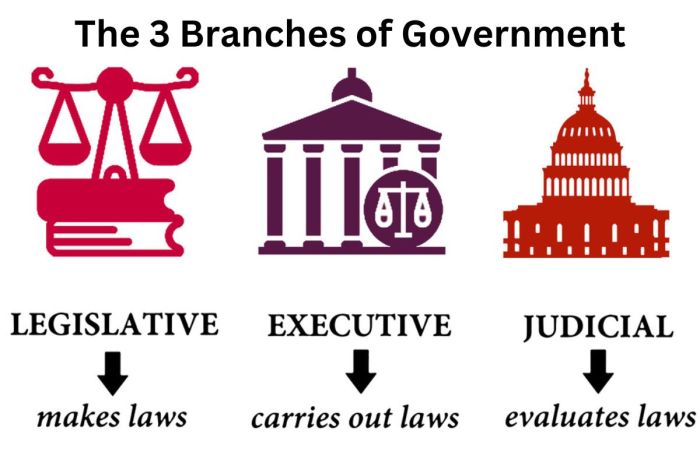Which statements are true of communism check all that apply – Which statements are true of communism? Check all that apply. Communism is a political and economic system that is based on the belief that the means of production should be owned in common by all members of society. This system has been implemented in various forms throughout history, with varying degrees of success.
In this article, we will explore the core principles of communism, its different forms, and its impact on society. We will also discuss the criticisms of communism and its relevance in the modern world.
Historical Roots of Communism
Communism, a political and economic system, emerged as a response to the industrial revolution and the perceived inequalities it created. The origins of communist ideology can be traced back to the works of Karl Marx and Friedrich Engels, who criticized capitalism’s exploitation of workers and its inherent contradictions.
Influence of Marxism and Socialist Theories
Marxism, developed by Karl Marx, provided the theoretical foundation for communism. It analyzed the class struggle between the bourgeoisie (capitalists) and the proletariat (workers), arguing that the latter would ultimately overthrow the former and establish a classless society.
Other socialist theories, such as those proposed by utopian socialists like Henri de Saint-Simon and Charles Fourier, also influenced the development of communist thought by emphasizing the need for collective ownership and cooperation.
Core Principles of Communism

Class Struggle, Which statements are true of communism check all that apply
Central to communist theory is the concept of class struggle, which posits that society is divided into two opposing classes: the bourgeoisie (capitalists) and the proletariat (workers). Marx argued that the interests of these classes are inherently opposed, and that the struggle between them drives social change.
Collective Ownership
Communism advocates for collective ownership of the means of production, such as factories, land, and resources. This means that these assets are owned and controlled by the community as a whole, rather than by private individuals or corporations.
Dictatorship of the Proletariat
Marx believed that after the proletariat overthrows the bourgeoisie, a transitional period known as the “dictatorship of the proletariat” would be necessary to establish a classless society. During this period, the proletariat would hold political power to suppress any counter-revolutionary forces.
Different Forms of Communism
Leninism
Leninism, developed by Vladimir Lenin, adapted Marxism to the Russian context. It emphasized the role of a vanguard party to lead the revolution and establish a socialist state. Lenin’s ideas played a crucial role in the Bolshevik Revolution and the establishment of the Soviet Union.
Stalinism
Stalinism, associated with Joseph Stalin, was a highly centralized and authoritarian form of communism that emerged in the Soviet Union after Lenin’s death. It involved the suppression of political dissent, the collectivization of agriculture, and the establishment of a totalitarian regime.
Maoism
Maoism, developed by Mao Zedong, adapted Marxism to the Chinese context. It emphasized the importance of peasant revolution and the use of guerrilla warfare to overthrow the ruling class. Maoism was instrumental in the establishment of the People’s Republic of China.
Impact of Communism on Society: Which Statements Are True Of Communism Check All That Apply

Social and Economic Effects
Communist policies have had a profound impact on societies where they have been implemented. They have led to the redistribution of wealth and resources, the expansion of social welfare programs, and the peningkatan of literacy and education levels.
Propaganda and Censorship
Communist regimes have often relied on propaganda and censorship to control information and maintain their power. This has included the suppression of dissenting voices, the manipulation of media, and the restriction of access to certain types of literature and art.
Human Rights and Political Freedoms
Communist regimes have often been criticized for their suppression of human rights and political freedoms. This has included the suppression of free speech, assembly, and religion, as well as the use of political imprisonment, torture, and executions.
Criticisms of Communism

Theoretical Criticisms
Communism has been criticized on theoretical grounds for its utopian vision of a classless society and its assumption that the proletariat will inevitably overthrow the bourgeoisie. Critics argue that human nature and the complexities of social systems make such a transition unlikely.
Practical Criticisms
Communism has also been criticized for its practical failures. Critics point to the historical examples of communist regimes, which have often been characterized by authoritarian rule, economic inefficiency, and social repression.
Relevance of Communism in the Modern World
Despite the failures of many communist regimes, communist ideas and principles continue to have relevance in the modern world. They provide a critique of capitalism and its inherent inequalities, and they offer a vision of a more just and egalitarian society.
Influence on Social Movements
Communist ideas have influenced a wide range of social movements, including labor movements, anti-imperialist movements, and environmental movements. These movements have adopted communist principles of solidarity, collective action, and social justice.
Challenges and Opportunities
Communism faces challenges in the 21st century, including the rise of globalization and the dominance of neoliberal economic policies. However, it also presents opportunities for rethinking social and economic systems and for creating more just and sustainable societies.
Q&A
What is the main goal of communism?
The main goal of communism is to create a classless, stateless society in which all people are equal.
What are the key principles of communism?
The key principles of communism include the abolition of private property, the common ownership of the means of production, and the distribution of goods and services according to need.
What are the different forms of communism?
The different forms of communism include Leninism, Stalinism, and Maoism.
What are the criticisms of communism?
The criticisms of communism include the suppression of individual freedom, the inefficiency of central planning, and the potential for authoritarianism.